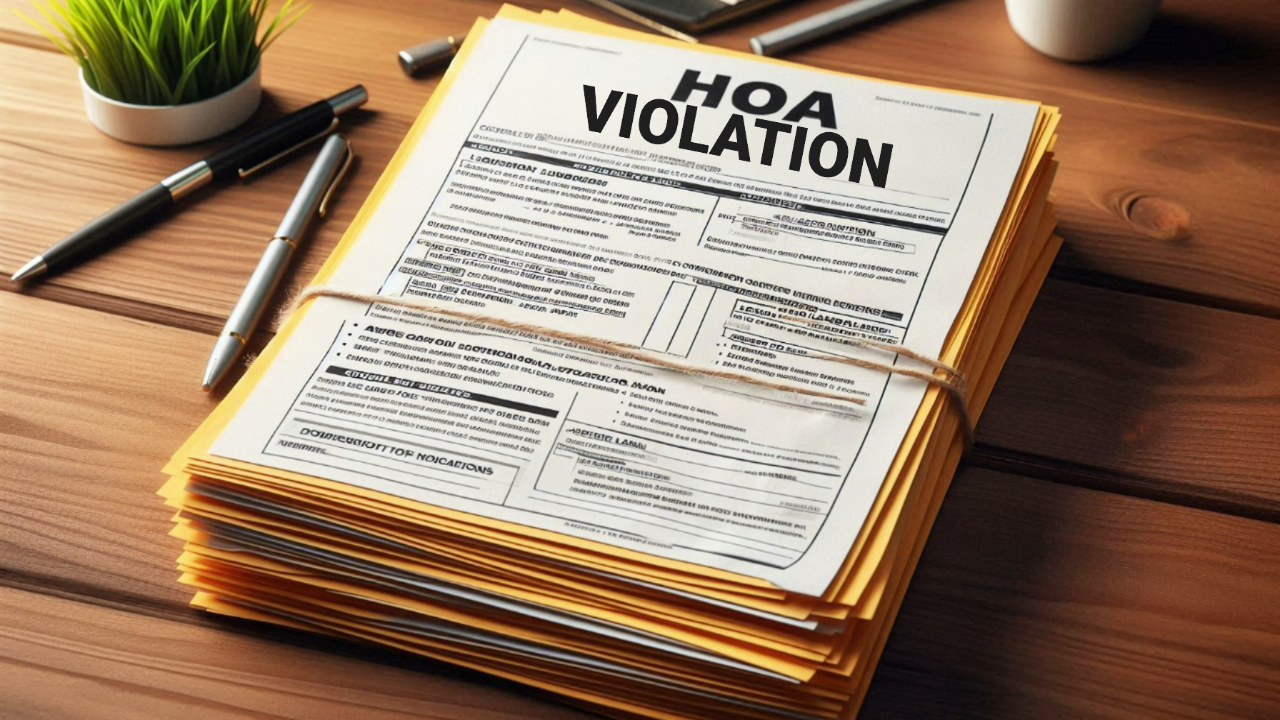Can an HOA Enter Your Property to Fix Landscaping Without Permission?

Homeowners’ Associations (HOAs) are responsible for maintaining the appearance and standards of a neighborhood, which often includes enforcing landscaping rules. However, many homeowners wonder: Can an HOA legally enter your property to fix landscaping without your permission? The answer depends on several factors, including your HOA’s governing documents, the nature of the violation, and local laws.
Understanding HOA Authority
An HOA’s power to act is outlined in its governing documents—typically the Covenants, Conditions, and Restrictions (CC&Rs), bylaws, and rules and regulations. These documents may include provisions that allow the HOA to take corrective action if a homeowner fails to comply with landscaping standards. However, this does not mean they have unlimited access to your private property.
In most cases, HOAs can only enter certain parts of your property—usually what’s classified as "common areas" or "easements"—unless they have explicit permission or an emergency situ...
How to Respond to an HOA Violation for Lawn or Landscape Issues

Homeowners’ Associations (HOAs) are designed to maintain the appearance and value of neighborhoods through rules and regulations. One common issue that arises is HOA violations related to lawns or landscaping. If you receive a notice of violation, it’s important to handle the situation promptly and professionally. Here's a step-by-step guide on how to respond to an HOA violation concerning your lawn or landscape.
1. Review the Violation Notice Carefully
The first step is to read the notice thoroughly. Identify what specific rule you are alleged to have violated. HOAs typically reference the relevant clause in the community’s Covenants, Conditions, and Restrictions (CC&Rs). Take note of the deadline given to resolve the issue, any potential fines, and whether there is an appeal process.
2. Understand the Rules

If you're unsure about the violation, revisit the HOA's governing documents, especially the landscaping guidelines. Some HOAs have strict requirements about grass height, ty...
Can Landlords Deny Emotional Support Animals? Understanding Fair Housing Laws

Emotional Support Animals (ESAs) provide therapeutic benefits to individuals with mental or emotional disabilities. With mental health awareness on the rise, more tenants are seeking the right to keep ESAs in their homes. However, this raises an important question for landlords: Can landlords deny emotional support animals? The answer lies in understanding the Fair Housing Act (FHA) and related legal protections.
What Is an Emotional Support Animal?
Unlike service animals, which are trained to perform specific tasks for people with physical disabilities, ESAs do not require special training. Their primary role is to offer comfort and emotional support to individuals suffering from conditions like depression, anxiety, PTSD, or other mental health challenges. A licensed mental health professional must provide documentation verifying the need for an ESA.
The Fair Housing Act and ESAs
Under the Fair Housing Act (FHA), landlords are required to provide reasonable accommodations to tenan...
Common Causes of Tenant Injuries — and How Landlords Can Prevent Them

Landlords have a legal and ethical responsibility to ensure that rental properties are safe for tenants. Unfortunately, accidents and injuries can occur when property maintenance is neglected or when hazards go unaddressed. Understanding the most common causes of tenant injuries—and how to prevent them—can help landlords protect their tenants and reduce liability.
1. Slips, Trips, and Falls
One of the most frequent causes of injuries in rental properties is slipping or tripping due to unsafe conditions. Wet floors, uneven walkways, loose carpeting, and poorly lit staircases are common culprits.
Prevention Tips:
- Regularly inspect flooring, handrails, and lighting.
- Install non-slip surfaces in bathrooms and entryways.
- Fix loose tiles, torn carpets, or uneven steps immediately.
- Ensure outdoor walkways and staircases are well-lit and free of debris.
2. Faulty Stairs and Railings
Stairways and balconies can become dangerous if they are not maintained properly. Broken railings o...
How to Legally Back Out of a House Offer: Is It Possible?

Buying a home is one of the most significant financial decisions a person can make. However, circumstances can change, and you may find yourself needing to back out of an offer. While backing out of a house offer is possible, it must be done legally to avoid financial and legal consequences. Here’s what you need to know about legally withdrawing from a home purchase agreement.
1. Understanding the Purchase Agreement
A purchase agreement is a legally binding contract between a buyer and a seller. Once both parties sign the contract, the buyer is typically obligated to proceed with the purchase unless specific conditions allow them to exit. Understanding the terms of your agreement is crucial in determining if and how you can back out.
2. Contingencies That Allow Buyers to Back Out

Most purchase agreements include contingencies—specific conditions that must be met for the sale to go through. If a contingency is not satisfied, the buyer can legally withdraw from the contract without...
When Is a Landlord Liable for a Tenant’s Injury?

As a landlord, renting out property comes with many responsibilities, including ensuring a safe living environment for tenants. However, accidents can happen, and when a tenant is injured on the premises, the question of landlord liability arises. Understanding when a landlord is legally responsible for a tenant’s injury is crucial for both property owners and renters.
General Principles of Landlord Liability
Landlords are not automatically liable for every injury that occurs on their property. Instead, their liability depends on factors such as negligence, duty of care, and adherence to landlord-tenant laws. In general, a landlord can be held responsible if the injury resulted from unsafe conditions that the landlord knew or should have known about and failed to address.
Common Situations Where a Landlord May Be Liable

Several scenarios can make a landlord legally responsible for a tenant’s injury:
Failure to Maintain the Property
Landlords have a duty to maintain the premises...
What Legal Powers Does an HOA Have?

Homeowners’ associations (HOAs) play a vital role in maintaining community standards, enforcing rules, and ensuring shared amenities are well-managed. While they provide benefits such as property value protection and neighborhood uniformity, HOAs also wield significant legal powers that can impact homeowners. Understanding these powers is essential for anyone living in an HOA-governed community.
1. Creation and Enforcement of Rules
HOAs have the authority to establish and enforce rules through governing documents, typically consisting of the Declaration of Covenants, Conditions, and Restrictions (CC&Rs), bylaws, and rules and regulations. These documents outline homeowners' obligations, restrictions on property usage, and architectural guidelines. Failure to comply can lead to fines, penalties, or other enforcement actions.
Read more: Top Mistakes Homebuyers Make When Reviewing HOA Documents
2. Collection of Fees and Assessments

HOAs rely on fees from homeowners to maintain com...
Age Discrimination in Housing: What Seniors and Young Renters Should Know

Age discrimination in housing is an often-overlooked issue that affects both seniors and young renters. While many people are aware of housing discrimination based on race, gender, or disability, age-based discrimination is equally harmful and can limit housing opportunities for individuals at both ends of the age spectrum. Understanding what constitutes age discrimination, how to recognize it, and what steps to take if you experience it is crucial for ensuring fair treatment in the housing market.
What is Age Discrimination in Housing?
Age discrimination occurs when someone is treated unfairly in housing-related transactions because of their age. While the federal Fair Housing Act (FHA) does not explicitly include age as a protected category, certain age-related discrimination cases may fall under other protected classes. For example, discrimination against seniors may intersect with disability discrimination, while discrimination against young renters may overlap with familial stat...
How to Recognize and Report Housing Discrimination

Housing discrimination is a pervasive issue that undermines the principles of equality and fairness. It occurs when individuals or groups are treated unfairly in housing-related transactions based on protected characteristics such as race, color, religion, sex, disability, familial status, or national origin. Recognizing and reporting housing discrimination is essential to ensuring that everyone has equal access to housing opportunities. Here’s how you can identify and address this issue effectively.
Recognizing Housing Discrimination
Housing discrimination can take many forms, some of which are subtle and difficult to detect. Here are common signs to watch for:
- Differential Treatment: If a landlord, real estate agent, or property manager treats you differently from others based on your protected characteristics, it may be discrimination. For example, being told a unit is unavailable when it is actually still on the market, or being shown fewer properties than other applicants.
- D...
Can You Put a Rental Property in a Trust?

Investing in rental properties can be a lucrative way to generate passive income and build long-term wealth. However, as your real estate portfolio grows, so does the need to protect your assets and plan for the future. One common strategy used by property owners is placing rental properties into a trust. But can you put a rental property in a trust? The answer is yes, and doing so can offer several benefits, including asset protection, estate planning advantages, and potential tax benefits.
What is a Trust?
A trust is a legal entity that holds assets on behalf of a beneficiary or beneficiaries. It is created by a grantor (the person who owns the assets) and managed by a trustee, who is responsible for administering the trust according to its terms. There are several types of trusts, but the most common ones used for real estate are revocable living trusts and irrevocable trusts.
Why Put a Rental Property in a Trust?
Estate Planning and Probate Avoidance
One of the primary reasons...